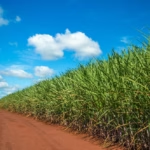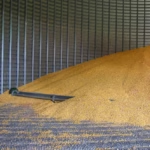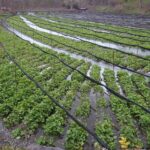South Africa’s agricultural sector offers a wealth of opportunities for farmers to explore innovative and profitable farming ventures. With diverse climatic conditions and a rich agricultural heritage, the country provides a fertile ground for entrepreneurial farmers. In this article, we will discuss ten farming ideas that South African farmers can consider to diversify their operations and tap into emerging markets.
- Organic Farming: The demand for organic produce is on the rise globally, and South Africa is no exception. Organic farming involves cultivating crops or raising livestock without synthetic pesticides, fertilizers, or genetically modified organisms (GMOs). By adopting organic farming practices, farmers can cater to health-conscious consumers and potentially access premium markets.
- Hydroponics and Vertical Farming: Hydroponics and vertical farming are innovative techniques that allow farmers to cultivate crops in a controlled environment with limited space. These methods rely on nutrient-rich water solutions and artificial lighting to grow plants vertically or without soil. Hydroponics and vertical farming are particularly suitable for urban areas, allowing farmers to maximize yields while conserving water and land resources.
- Agroforestry: Agroforestry integrates the cultivation of trees, crops, and/or livestock in a sustainable manner. This farming system enhances biodiversity, conserves soil, and improves water management. South African farmers can explore agroforestry models that combine fruit trees, native species, and grazing livestock, creating a multi-layered and resilient farming ecosystem.
- Medicinal Plant Farming: The demand for medicinal plants and herbs is growing globally. South Africa’s rich biodiversity offers a wide range of indigenous medicinal plants that can be sustainably cultivated. Farmers can explore cultivating herbs such as rooibos, buchu, and aloe vera, targeting both the local and export markets for herbal teas, essential oils, and natural health products.
- Avocado and Macadamia Farming: Avocado and macadamia farming have experienced significant growth in South Africa due to increasing international demand. The country’s favorable climate and growing conditions make it suitable for these high-value tree crops. Establishing avocado or macadamia orchards can provide long-term income potential for farmers, catering to both domestic and export markets.
- Beekeeping and Honey Production: Beekeeping offers multiple benefits, including honey production, beeswax, and pollination services. South Africa’s diverse flora and rich beekeeping tradition make it an ideal location for beekeeping enterprises. Beekeepers can tap into the growing demand for honey and bee-related products while supporting ecosystem health through pollination services.
- Tilapia Fish Farming: Tilapia fish farming presents an opportunity to diversify farming operations and meet the increasing demand for fish protein. Tilapia is a hardy and fast-growing species that can be raised in ponds or tanks. Farmers can explore fish farming systems that integrate aquaponics, combining fish production with hydroponic vegetable cultivation.
- Indigenous Livestock Breeding: Indigenous livestock breeds, such as Nguni cattle and indigenous goats, offer advantages in terms of adaptability, resilience, and genetic diversity. Breeding and raising indigenous livestock can preserve these valuable genetic resources while catering to a growing market for ethically raised and unique meat products.
- Solar Power Farming: With abundant sunlight, South Africa has great potential for solar power generation. Farmers can consider installing solar panels on their farms to generate clean and renewable energy. Solar power farming not only reduces reliance on fossil fuels but also provides an additional revenue stream through electricity generation and potentially selling excess power to the grid.
- Mushroom Cultivation: Mushroom cultivation is a niche farming opportunity that can be pursued in South Africa. Edible mushroom varieties such as button mushrooms, oyster mushrooms, and shiitake mushrooms have a high demand in the culinary and health food sectors. Farmers can explore growing mushrooms in controlled environments or by utilizing agricultural waste materials.
South African farmers have a myriad of farming ideas to explore, ranging from organic farming and agroforestry to niche ventures like medicinal plant farming and mushroom cultivation. By diversifying their farming operations and tapping into emerging markets, farmers can enhance their profitability, contribute to sustainable agriculture, and meet the evolving needs of consumers both locally and internationally. Proper planning, research, and acquiring the necessary skills and knowledge are crucial when embarking on new farming ventures to ensure long-term success.








